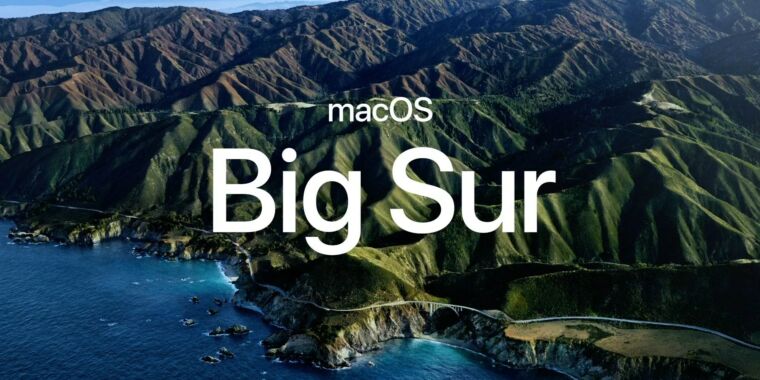After I upgraded my Mac OS from version 10.15.7 to Big Sur 11.0.1, the Virtualbox VM crashed all the time. Erro message is below:
If you need VirtualBox and Vagrant you might have a problem. After some searching around I got the informations to make a step by step guide to fix the issues. Update VirtualBox. To update VirtualBox to the newest version we first need to uninstall the old version we used before (seems to be the only solution to get it running on the new OS again). Love letters of a portuguese nun youtube. If you want to run macOS 11 Big Sur using your VirtualBox virtual machine first and foremost you’re going to need a macOS Big Sur image (ISO file). On here are the installation files that you need to install macOS versions 11 These images are available online however not all of them guaranteed to work with VirtualBox. Is there any way I'm able to use the Virtualbox in the macOS Big Sur? Here are some details: macOS: Big Sur 11.0 Beta (20A5343i) Virtualbox version: 6.1.12 r139181 (Qt5.6.3) After upgrade, when I launch the machine, it pop out the dialog saying: Kernel driver not installed (rc=-1908) Make sure the kernel module has been loaded successfully. Now, macOS Big Sur on Virtual Box is installed successfully. System requirements of Mac OS Big Sur on VMware/VirtualBox. System must support the “Virtualization technology”. Enabling this, the user may be able to run Virtualization software such as VirtualBox or VMware. Windows operating system requires 64- bit memory.
Kernel driver not installed (rc=-1908)
Make sure the kernel module has been loaded successfully.
where: suplibOsInit what: 3 VERR_VM_DRIVER_NOT_INSTALLED (-1908) - The support driver is not installed. On linux, open returned ENOENT.
I did a few searches on the web, it seems the problem occurred when the VirtualBox kernel driver is not loaded or permission is not right. In my case, it is related to the security setting in Mac OS. I need to provide permission to system modules from Oracle.
Note: This message only popup after you have new installation of Virtualbox.
I tried to reinstall Virtualbox a few times in my Mac to allow this, but did not work for me. Then I found another procedure with CMD line from web.
Source: https://www.virtualbox.org/ticket/19795
58. Apparently, there was a long discussion since Big Sur beta was released. Fortunately, there was a solution tested and posted by NickyD at the bottom of the thread.
Tested by NickyD: VirtualBox 6.1.16 r140961 running on BigSur macOS 11.0.1 (20B29) / Darwin 20.1.0
Tested by me: Virtualbox Offical release 6.1.16 ( r140961 (Qt5.6.3)) + BigSur MacOS11.0.1 (first public release of Big Sur), It worked well for me, too.
Step 1: sudo kextload -b org.virtualbox.kext.VBoxDrv
Step 2: Go into System Preferences->Security & Privacy
Step 3: Unlock the security center
Step 4: Approve the software by Oracle
Step 5:
sudo kextload -b org.virtualbox.kext.VBoxNetFlt
sudo kextload -b org.virtualbox.kext.VBoxNetAdp
sudo kextload -b org.virtualbox.kext.VBoxUSB
Step 6: Reboot

Info about Virtualbox kernel modules: https://www.virtualbox.org/manual/UserManual.html#externalkernelmodules
- VBoxDrv: VirtualBox Linux kernel driver
- VBoxNetFlt and VBoxNetAdp: network driver
- VBoxUSB: USB support
I was not familiar with kextload, so I summarize some info collected from https://osxdaily.com/2015/06/24/load-unload-kernel-extensions-mac-os-x/
kext is Kernel extensions for short, which are modules of code that are loaded directly into the kernel space of Mac OS X, able to run at a low-level to perform a variety of tasks. Most kexts are part of the core Mac OS X system software, typically hardware device drivers, but some third party apps will install a kext as well.
kextload: cmd to load a kernel extension into Mac OS X.
Macos Virtualbox Audio
sudo kextload /path/to/kext.kext
kextload -b: use the bundle identifier (which are frequently the targets of defaults commands)
Macos Big Sur Virtualbox Image
sudo kextload -b com.apple.driver.ExampleBundle

Either way, hit return and with the entry of the administrator password the kernel extension will be loaded into Mac OS X.
kextstat: list the kernels loaded
$ kextstat |grep com.apple.driver.ExampleBundle
125 0 0xdddddd7f23351040 0x5000 0x5000 com.apple.driver.ExampleBundle (1) 12 8 7 5 4 2 1
kextunload: unload a kernal extension.
sudo kextunload -b com.apple.driver.ExampleBundle
Or by pointing directly to the kernel extensions path:
Ewora software. sudo kextunload /System/Library/Extensions/ThirdPartyMystery.kext
